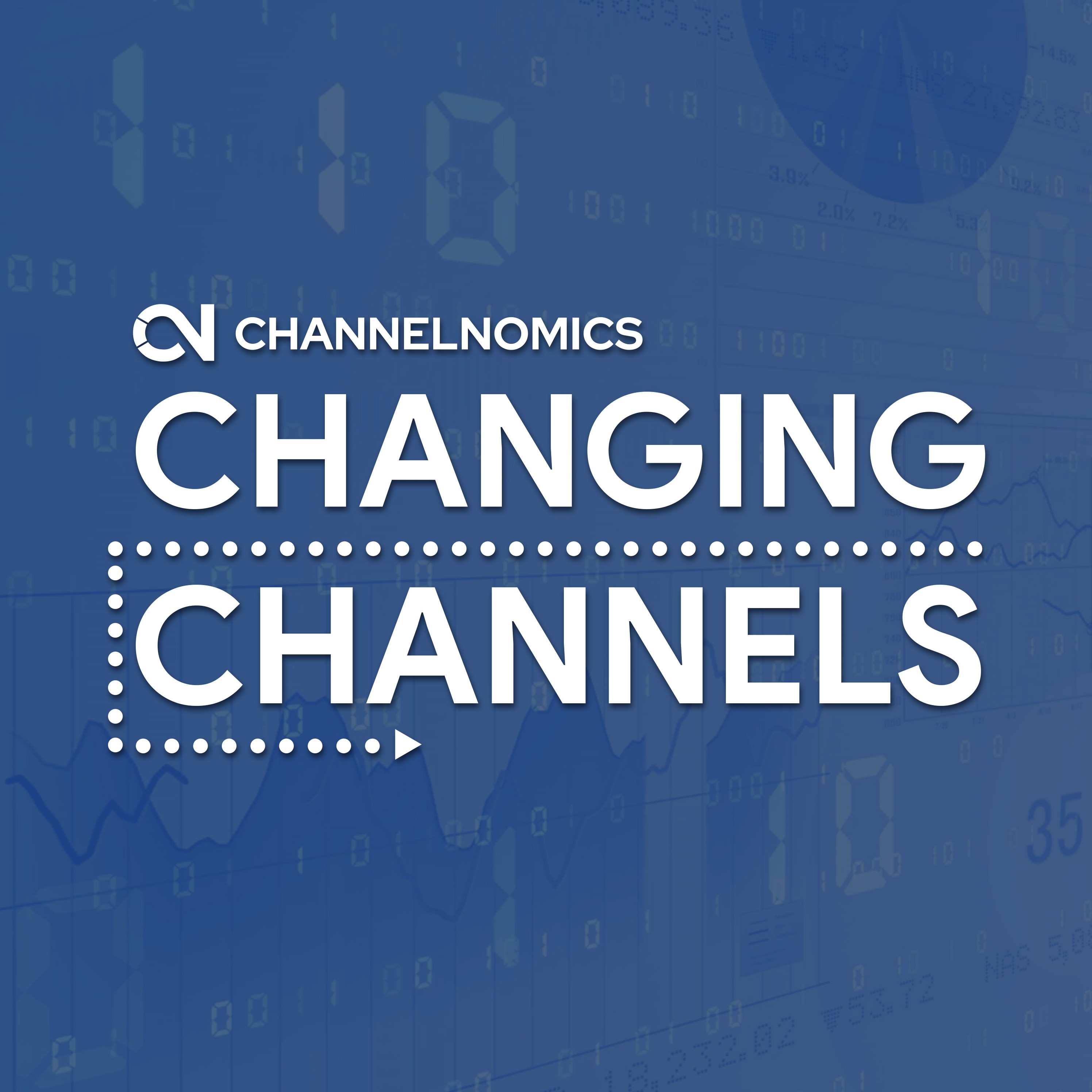
7.7K
Downloads
172
Episodes
Changing Channels uncovers what it takes to get the next generation of technology to market. Join Larry Walsh, chief analyst and CEO of Channelnomics, for candid conversations with thought leaders, channel chiefs, and partner executives sharing actionable insights, best practices, and lessons learned in a channel that’s constantly changing. Each episode provides expert go-to-market guidance for enhanced performance in the channel.
Changing Channels uncovers what it takes to get the next generation of technology to market. Join Larry Walsh, chief analyst and CEO of Channelnomics, for candid conversations with thought leaders, channel chiefs, and partner executives sharing actionable insights, best practices, and lessons learned in a channel that’s constantly changing. Each episode provides expert go-to-market guidance for enhanced performance in the channel.
Episodes

Tuesday Mar 10, 2020
Episode 92: SAP’s Meaghan Sullivan on the ‘Corona Effect’
Tuesday Mar 10, 2020
Tuesday Mar 10, 2020
SAP's Meaghan Sullivan joins POD2112 to share how the coronavirus outbreak could reshape marketing strategies in the long run.
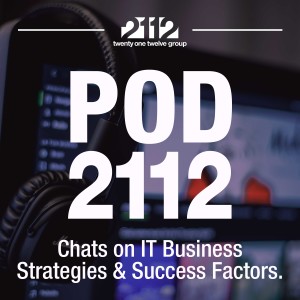
Thursday Feb 27, 2020
Episode 91: GTDC’s Frank Vitagliano on the Future of Distribution
Thursday Feb 27, 2020
Thursday Feb 27, 2020
As technology continues to evolve and the market adopts service-based models, many vendors question the value distribution is contributing, and will contribute, to the go-to-market equation.
Traditionally, distribution is the layer that provides logistics, contract manufacturing, customization services, financing, and technical support on behalf of vendors to their partners. Some people believe that cloud computing and other service-based models diminish the need for distribution, as there’s little product to ship and support.
But distribution is evolving. While distributors continue to offer the traditional “pick, pack, and ship” services, they’re also providing value-add services in marketing, market intelligence, business development, hosting, service management, and more.
In addition, distributors’ financing activities are proving more valuable than ever as vendors and partners look to recognize service contracts before their terms mature. And distributors continue to look for ways to reinvent themselves, adding value to the vendor, partner, and end-user segments of the technology market.
The chief advocate for the distribution segment and its value proposition is the Global Technology Distribution Council (GTDC).
Now under the leadership of channel veteran and icon Frank Vitagliano, GTDC is reinvigorating its mission of distribution advocacy with new programs and initiatives to help vendors understand what distribution is doing for them today and how distributors will continue to evolve over the next decade.
Vitagliano, who was a channel chief at IBM, Juniper Networks, and Dell, as well as the CEO of a systems integrator, has a unique perspective on distribution. He joins POD2112 to discuss the evolving value of distribution and how distributors will remain relevant in the service era.
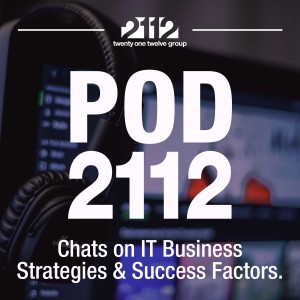
Saturday Feb 15, 2020
Episode 90: CoreKinect’s Assar Badri and John Horn on Smart IoT Manufacturing
Saturday Feb 15, 2020
Saturday Feb 15, 2020
Internet of Things (IoT) is a multi-trillion-dollar opportunity. Connecting legacy systems to autonomous sensors and controllers are opening new vistas for creating smart enterprises, manufacturing, cities and homes.
Vendors – old and new – are creating IoT components and systems to bring the smart world vision into reality. IoT architectures are popping up all over the channel. The expectations are high that IoT will result in greater user experiences and operational efficiencies. Moreover, IoT sellers and buyers have grand visions for immediate and ongoing returns on their investments.
On the supply side of the IoT equation is the manufacturing process. IoT devices – sensors and controllers – must often operate in cramped, remote, and exposed locations. IoT devices require durability, as they’ll operate in the wild for as long as a decade (or longer). And they require security during the manufacturing process to their lifetime operation.
These are significant challenges the permeate the conception, design, manufacturing, architecture, deployment, and operational phases of the IoT lifecycle.
CoreKinect, an IoT design and manufacturing startup, is solving these IoT manufacturing challenges with a unique process for quickly translating IoT concepts into prototypes, and prototypes into finished products. And when it comes to manufacturing at scale, CoreKinect is building the products it brings to reality in the United States ensuring end-to-end security and quality at surprisingly competitive costs.
CoreKinect CEO and co-founder Assar Badri and president and chief strategist John Horn join Pod2112’s Larry Walsh to discuss the smarter way to design and build IoT devices and systems.
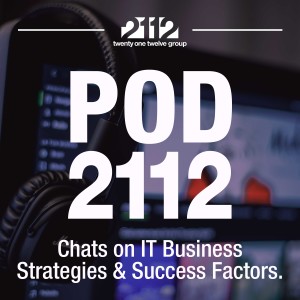
Tuesday Feb 04, 2020
Episode 89: D&H’s Jason Bystrak on Monetizing Every Seat with Services
Tuesday Feb 04, 2020
Tuesday Feb 04, 2020
Device and everything as a service is not a new concept. Since the early days of managed services, channel pros and practitioners foresaw a day in which the tech industry sold and supported all devices, applications and resources as a service. With cloud computing and ubiquitous connectivity, everything as a service is a real and growing trend. Nevertheless, the channel – particularly in the SMB segment – is not addressing what some size as a $390 billion market. D&H Distributing – the leading distributor that largely focuses on SMB partners and market segments – is looking to convert nearly 70 million seats from traditional capital-expense hardware sales and software licenses to an end-to-end services-based consumption and support model delivered by solution providers. Jason Bystrak, vice president of the cloud business unit at D&H Distributing, joins Pod2112 to discuss the massive channel opportunity in everything as a service and how vendors and solution providers can participate in the multi-billion opportunity.
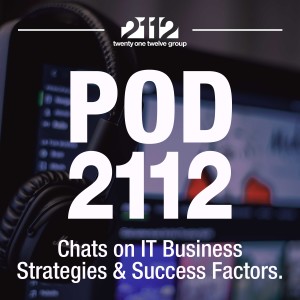
Tuesday Jan 21, 2020
Episode 88: Cohesity’s Bill Lipsin on Returning to the Channel Chief Role
Tuesday Jan 21, 2020
Tuesday Jan 21, 2020
Channel chiefs change jobs all the time, but few get the opportunity to build a channel program from the ground up. Channel veteran Bill Lipsin not only designed Cohesity’s recently launched channel program, but he did so as an outside consultant that grew into the job. Lipson, a widely regarded channel leader, joins POD2112 to discuss returning to the channel chief’s chair and the experience of building and launching a reimagined channel program.
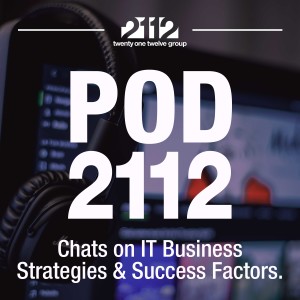
Sunday Jan 05, 2020
Episode 87: Barracuda MSP’s Neal Bradbury on Catching a Growth Trend
Sunday Jan 05, 2020
Sunday Jan 05, 2020
Generating growth is a challenge for all technology companies. Few can create lightning in a bottle on their own. In many cases, vendors can catch a ride on the growth train by attaching themselves to another growing technology that they complement. In the case of Barracuda MSP, a division of Barracuda Networks that provides managed services for security and backup, that opportunity came with Microsoft’s push to increase the number of Office 365 business users. By many accounts, as many as 90% of Microsoft Office users are still on perpetual legacy licenses. Translation: The migration opportunity is huge for Microsoft, and every account that gets switched to the cloud-attached service will need several complementary services, such as security and backup. Neal Bradbury, vice president of MSP Strategic Partnerships at Barracuda MSP, is heading up the effort to ensure that Barracuda MSPs don’t miss the opportunity created by the Microsoft push. I recently spoke with Neal about how he approaches creating a strategy to draft on an existing trend. In this episode of POD2112, Neal shares guiding principles that all vendors can apply in their go-to-market strategies.
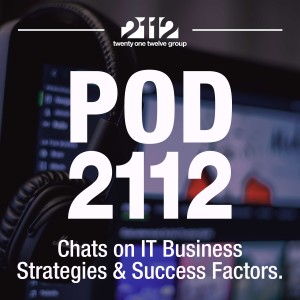
Friday Nov 15, 2019
Episode 86: NetApp’s Chris Lamborn on Making Partners Profit Independent
Friday Nov 15, 2019
Friday Nov 15, 2019
The indirect sales model was never intended to ensure or provide partner profitability. The profit of partner activities was and remains a product of what they provide to customers in value-added goods and services. Some technology vendors are making that principle the cornerstone of their channel profit model. By giving partners the breathing room, tools, and enablement to deliver more managed and professional services independently of their vendors, the more likely they can generate higher profits without consideration to the vendor’s products and margins. NetApp, which is rolling out a new go-to-market channel strategy, is among the vendors that are looking to make partners more profitable by giving partners the models, resources, and support that will make them profit independent. Chris Lamborn, head of worldwide partner go-to-market and programs at NetApp, joins Pod2112 to explain the strategy and potential benefits of partner profitability independence.
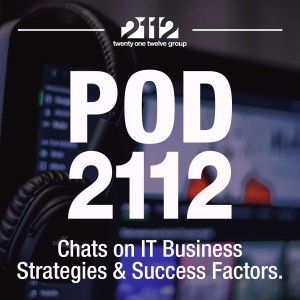
Saturday Nov 02, 2019
Episode 85: HP’s Stephanie Dismore on Reorganizing Large Organizations
Saturday Nov 02, 2019
Saturday Nov 02, 2019
HP has a storied history of innovation and propelling change in its partners and customers’ organizations. HP is now undergoing a sweeping change in its leadership, organization, go-to-market strategy, and culture with the appointment of a new CEO, the creation of its first chief commercial officer, and the restructuring of its global framework. HP is aiming to meet future partner and market needs with a focus on technology innovation, services models, and efficiency. Reshaping large, global organizations isn’t easy or quick. The process takes inspiration, vision, planning, and time to execute. The changes announced at HP are two years or more in the making, and required getting thousands of people around the world onboard with the vision and executing in the same direction. Stephanie Dismore, the new managing director of HP’s newly created North America market, joins Pod2112 to talk about the changes and what it takes to turn a giant, global organization.
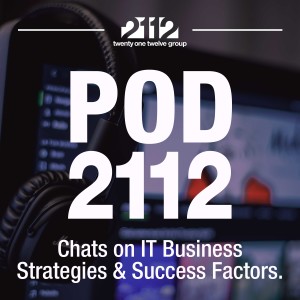
Tuesday Oct 22, 2019
Episode 84: TBI’s Bill Vander Vennet on Leveraging Partner Referrals
Tuesday Oct 22, 2019
Tuesday Oct 22, 2019
As the technology industry evolves with new and innovative products and services, partners face the challenge of acquiring new skills or losing business. The shortcut to satisfying customers, even when the products and skills are lacking, is referrals. Through referrals, partners can direct customers to trusted, qualified vendors and solution providers that can meet their technology needs. Referral programs offered by vendors, distributors and master agents provide the supply-side of the business with the ability to capture through-channel revenue regardless of the partner’s qualifications. And, referrals are often a catalyst for helping partners identify market opportunities that lead to skill and capacity acquisition. TBI’s national referral program director Bill Vander Vennet joins Pod2112 to talk about the value and power of referral programs for everyone in the go-to-market chain.
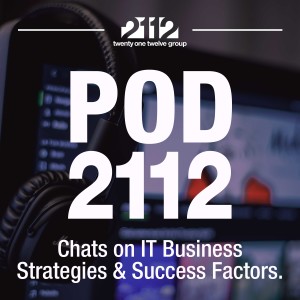
Sunday Sep 29, 2019
Episode 83: Google’s Nina Harding on Turning Partners into ‘Imagineers’
Sunday Sep 29, 2019
Sunday Sep 29, 2019
In the race to dominate the cloud computing era, Google Cloud is playing catchup to rival market leaders Amazon Web Services and Microsoft Azure. The difference maker, says Google Cloud’s management, is partners that are innovating with the cloud company and on behalf of their customers to building better, value-add solutions that produce better outcomes and return on investment. The strategy is already paying dividends as Google Cloud is expanding rapidly and picking up market share with the help of partners. Nina Harding, Google’s global chief of partner strategy and programs, joins Pod2112 to talk about how Google’s legacy of innovation is helping to make solution providers “imagineers” that devise new ideas, craft new solutions, and create new services in and around the Google Cloud.
